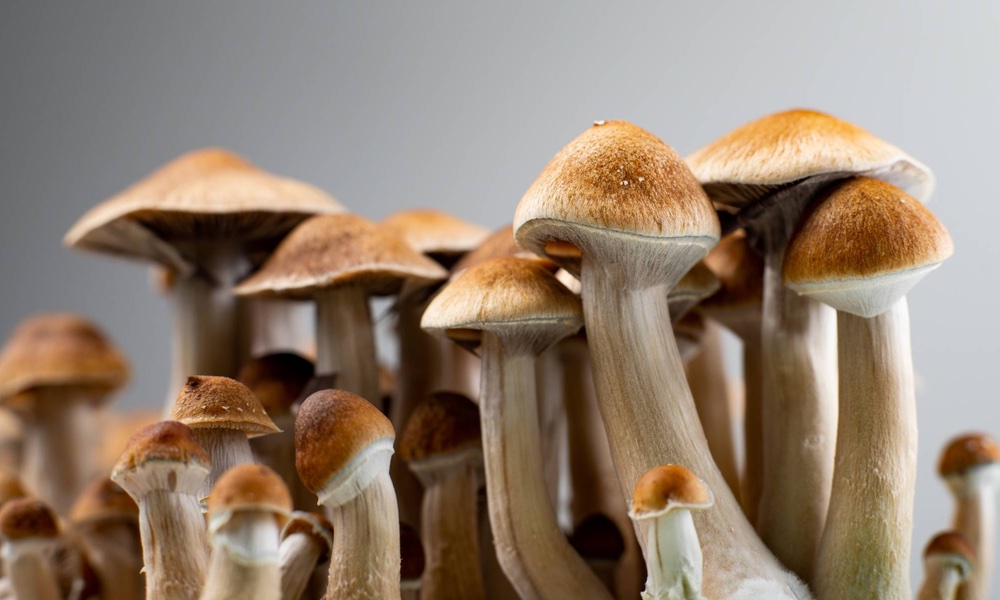Psilocybin is a hallucinogenic substance found in certain types of mushrooms. These fungi are often referred to as “magic mushrooms” or simply “shrooms.”
Psilocybin became popular during the late fifties and throughout the sixties and seventies when it was a recreational and illegal drug.
People who consume the “shroom” describe quasi-religious or intense experiences that can include distortions in time, space and within their own psyches.
Psilocybin's effects are temporary, however, and within the past decade there has been a revived research interest in psilocybin and other psychedelics as potential treatments for certain psychological conditions.The findings provide a neurobiological reason for the drug's hallucinatory effects, and may help in the development of psilocybin-based mental health therapies.
A growing number of mental health professionals are advocating that, under controlled conditions, psychedelic experiences can help people suffering with depression, anxiety, post-traumatic stress disorder (PTSD) and other mental health issues.
A recent study highlights psilocybin's effects on the brain, showing how it briefly disrupts the synchronization of a number of brain areas that usually work together.
When Washington University School of Medicine researchers watched what happens to the brain when psilocybin is taken, they found that the active compound in magic mushrooms temporarily scrambles a critical network of brain areas that are specifically involved in introspective thinking, daydreaming and memory.
The findings not only provide a neurobiological reason for the drug's hallucinatory effects, they may also support the development of psilocybin-based mental health therapies.
“There's a massive effect initially, and when it's gone, a pinpoint effect remains,” Nico U.F. Dosenback, the co-senior author of the study and a professor of neurology at Washington University School of Medicine, St. Louis, said in a press release.
“You wouldn't want people's brain networks to be obliterated for days, but you also wouldn't want everything to snap back to the way it was immediately,” Dosenback cautioned. “You want an effect that lasts long enough to make a difference.”
For the study, the team recruited seven healthy adults to take a high dose of either psilocybin or the generic form of Ritalin — methylphenidate — under controlled conditions.
A pair of trained experts stayed with each participant throughout because, on occasion, a psilocybin experience can be negative or frightening and may have physical side effects such as increased heart rate or nausea.
The experts also prepared the participants for what they were likely to experience by providing guidance ahead of time, as well as support during the experiment. After the experiment, the experts helped the volunteers to process what they had experienced.“The longer-term consequence is that it makes the brain more flexible and potentially more able to come into a healthier state.”
Each participant had an average of 18 functional MRI scans in the days to weeks before the experiments, as well as during and up to three weeks after their experiences with the psilocybin. Four participants came back six months later to repeat the experiment.
There were temporary, profound and widespread changes seen in the brain's functional networks when a person took psilocybin. It desynchronized an interconnected set of brain areas that ordinarily work together simultaneously.
Although the network re-established itself when the intense effects of the drug wore off, scans showed that small differences remained for weeks. The brain's functional networks in people who took the generic form of Ritalin stayed stable.
The results are promising. “The idea is that you're taking this system that's fundamental to the brain's ability to think about the self in relation to the world, and you're totally desynchronizing it temporarily,” said the study's first author, Joshua S. Siegal MD, PhD, an instructor in psychiatry at Washington University School of Medicine.
“In the short term, this creates a psychedelic experience. The longer-term consequence is that it makes the brain more flexible and potentially more able to come into a healthier state.”
One caution: though psylocibin has a low level of toxicity, according to the National Institute of Drug Abuse, people may do higher-risk things after taking mushrooms in an unsupervised environment — driving dangerously or walking in traffic, for example — as they may be less aware of their physical surroundings and be impaired in their ability to think clearly.
The study is published in Nature.





